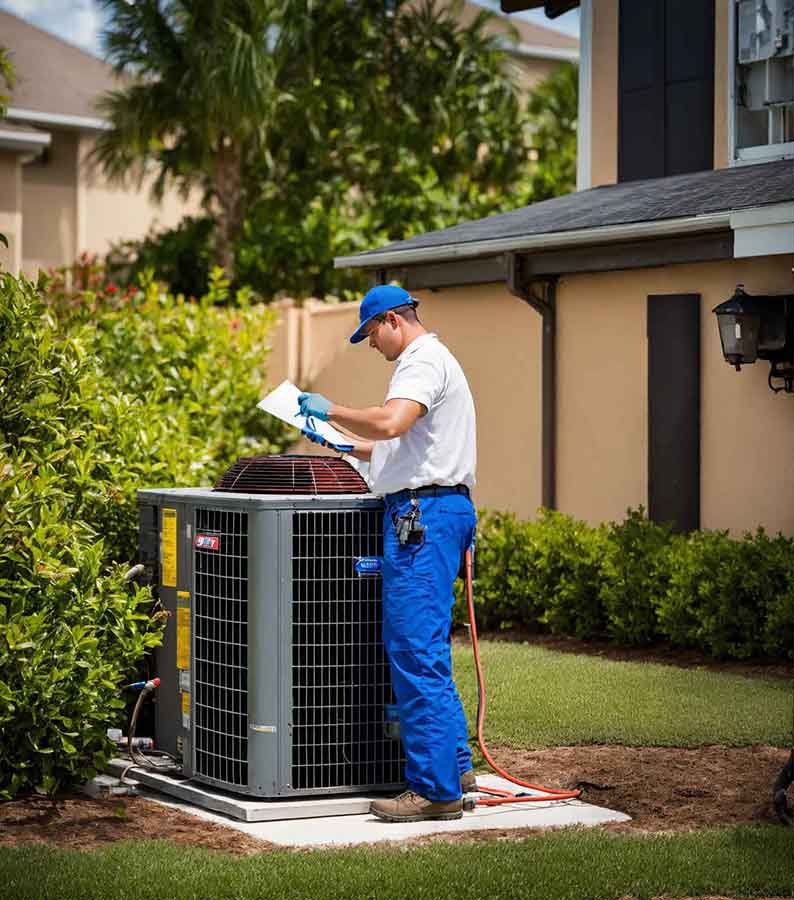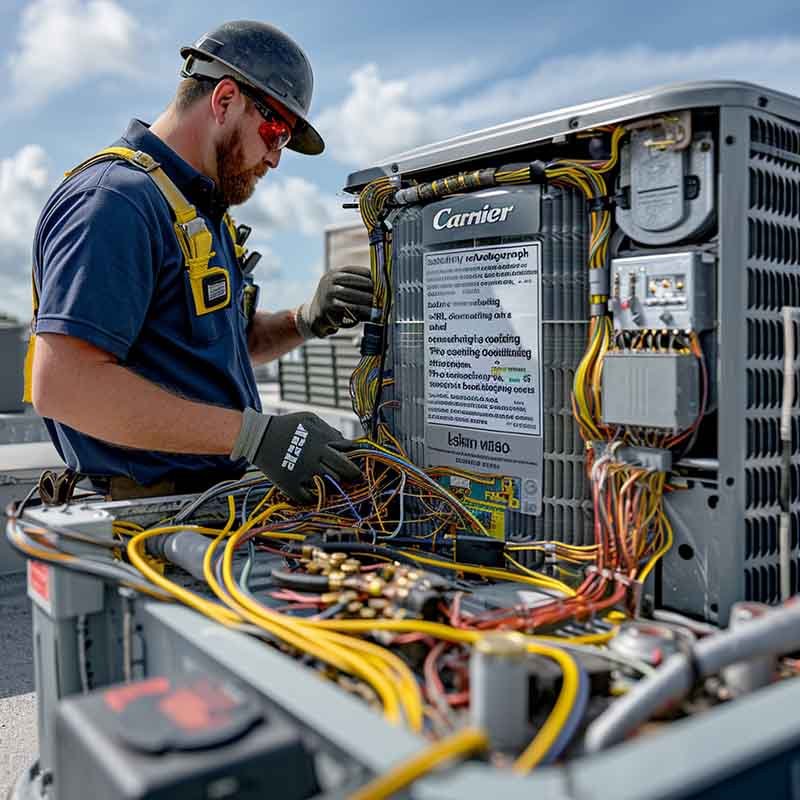We recommend servicing your air conditioner at least once a year. Regular maintenance ensures optimal performance, increases efficiency, and extends the lifespan of your unit.
Strange noises from your AC can be attributed to a variety of issues. If the noise is coming from the indoor unit, it might be due to problems with the blower or something loose in the ducts, poor duct insulation, or blockages. If the noise originates from the outdoor unit, the causes could range from a malfunctioning fan or compressor to parts vibrating due to loose fittings. Loose parts, debris in the system, and malfunctioning components like the compressor are also common culprits. The exact cause can vary depending on the location and type of noise, making it important to have a professional technician inspect your unit to accurately diagnose and resolve the issue.
Definitely! There are several effective strategies to reduce the energy consumption of your air conditioning system, which in turn can lower your energy bills significantly.
Firstly, consider the installation of devices designed to reduce the startup load of your AC unit. These devices can be particularly effective as the compressor and fans, the primary consumers of energy in your system, often require a significant amount of power during startup. By moderating this initial power surge, you can reduce overall energy usage.
Additionally, using programmable thermostats allows you to set and maintain optimal temperatures efficiently. You can program your AC to run at higher temperatures when you are not home and cool down your space just before you return, which can lead to substantial energy savings.
Setting your AC to eco-mode is another excellent way to cut down on energy usage. This mode operates the unit more efficiently by adjusting the cooling cycle and reducing energy consumption.
Regular maintenance of your AC unit is crucial too. A well-maintained system operates more efficiently and uses less energy. This includes cleaning or replacing filters, ensuring coils are free of dirt and debris, and verifying that all components are functioning correctly.
Finally, proper insulation in your home plays a significant role in energy conservation. Insulating walls, windows, and doors helps maintain a consistent indoor temperature, reducing the workload on your AC system.
Implementing these measures not only contributes to lower energy bills but also extends the lifespan of your AC unit and promotes a more sustainable environment.
Identifying a low refrigerant level in your AC unit is crucial for its efficient operation. Key indicators include reduced cooling efficiency, the AC taking a longer time to cool the room, and ice formation on the refrigerant lines. However, it's important to understand that if your AC is low on refrigerant, it almost certainly indicates a leak. Refrigerant in air conditioning systems isn't consumed or depleted under normal conditions; it circulates within a closed system. Therefore, a decrease in refrigerant levels is typically due to leakage or improper handling of the valves during maintenance.
Low refrigerant levels not only affect the cooling efficiency but also lead to increased electrical consumption. The system has to work harder and longer to achieve the desired temperature, which in turn spikes up your energy bills.
At BM Services USA, we specialize in accurately detecting and repairing refrigerant leaks. Our expert technicians use advanced methods and equipment to pinpoint even the smallest leaks, ensuring that your system is recharged to its proper level and sealed correctly. Addressing refrigerant issues promptly not only restores your AC's performance but also prevents further energy waste and potential damage to the system. If you suspect your AC might be low on refrigerant, it’s crucial to get it checked and resolved by professionals like us to ensure optimal performance and efficiency.
The lifespan of an air conditioning unit can vary, but most units last between 10 to 15 years. Proper maintenance and regular servicing can extend the life of your AC unit.
Yes, cleaning AC filters is crucial for maintaining air quality and efficiency. Filters should be cleaned or replaced every 1-3 months, depending on usage and environmental factors.
Water leakage from your AC unit could be due to a clogged drain line, a rusty drain pan, or improper installation. It's important to address this issue promptly to prevent water damage and potential mold growth.
Although DIY installations of AC units might seem feasible, it is strongly advised to enlist a professional for the installation. This recommendation is not only due to the complexity and the need for precise installation for optimal efficiency and safety but also due to legal requirements. Handling refrigerants, such as those used in AC units, requires certification under EPA Section 608. This certification is crucial because it ensures the safe and environmentally responsible handling of refrigerants. Professionals are not only skilled in installation but are also licensed to handle these substances, which is essential for both legal compliance and the safety of your home. Moreover, professional installation often includes service warranties, providing you with added assurance and support.
A central AC system uses ducts to distribute cool air throughout the house, ideal for larger homes with existing ductwork. Ductless mini-splits, on the other hand, are more suitable for smaller spaces or homes without ducts, offering individual temperature control for different rooms.
The ideal temperature setting depends on personal comfort, but generally, setting your AC between 75°F to 78°F (24°C to 26°C) during summer provides a balance between comfort and energy efficiency.


